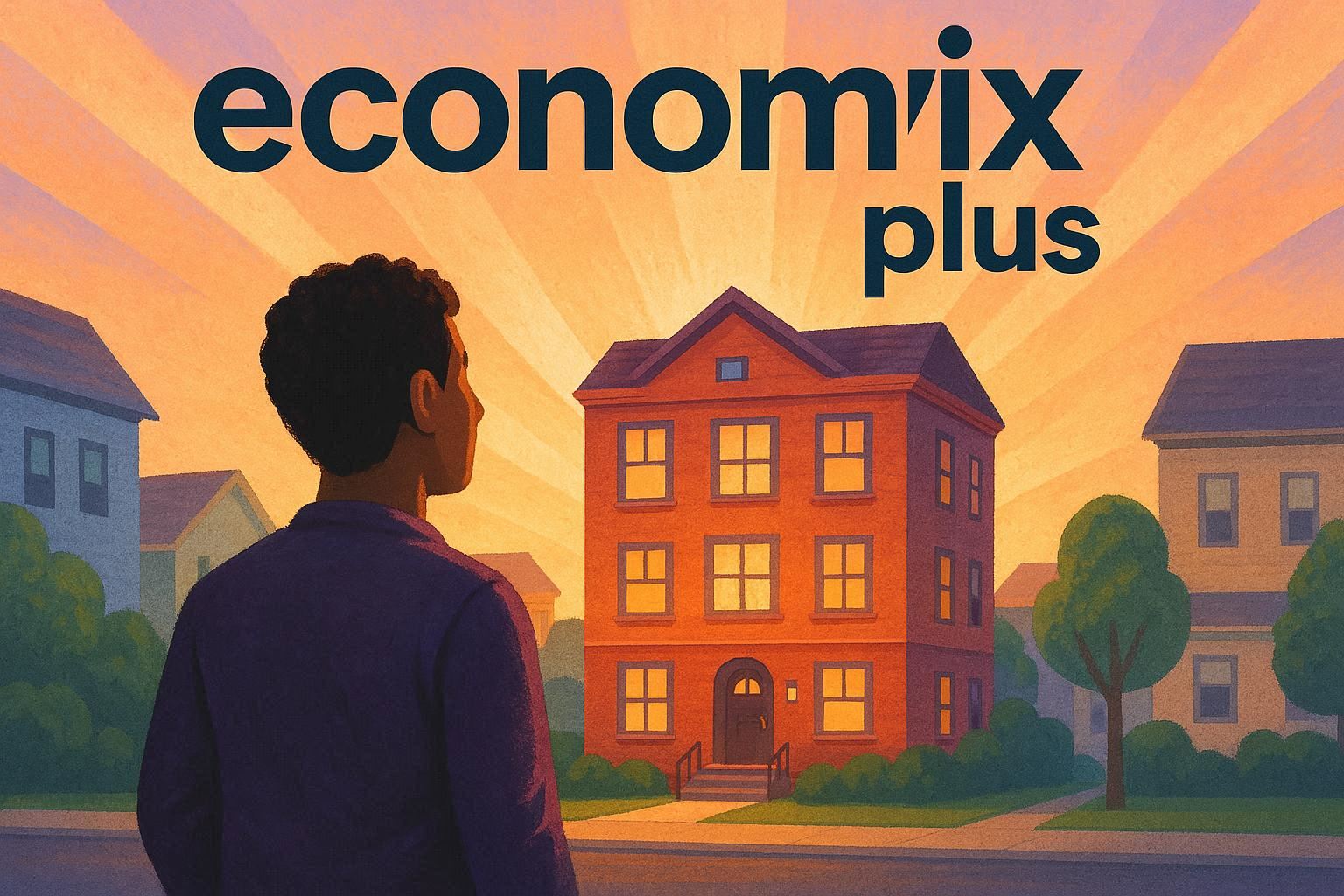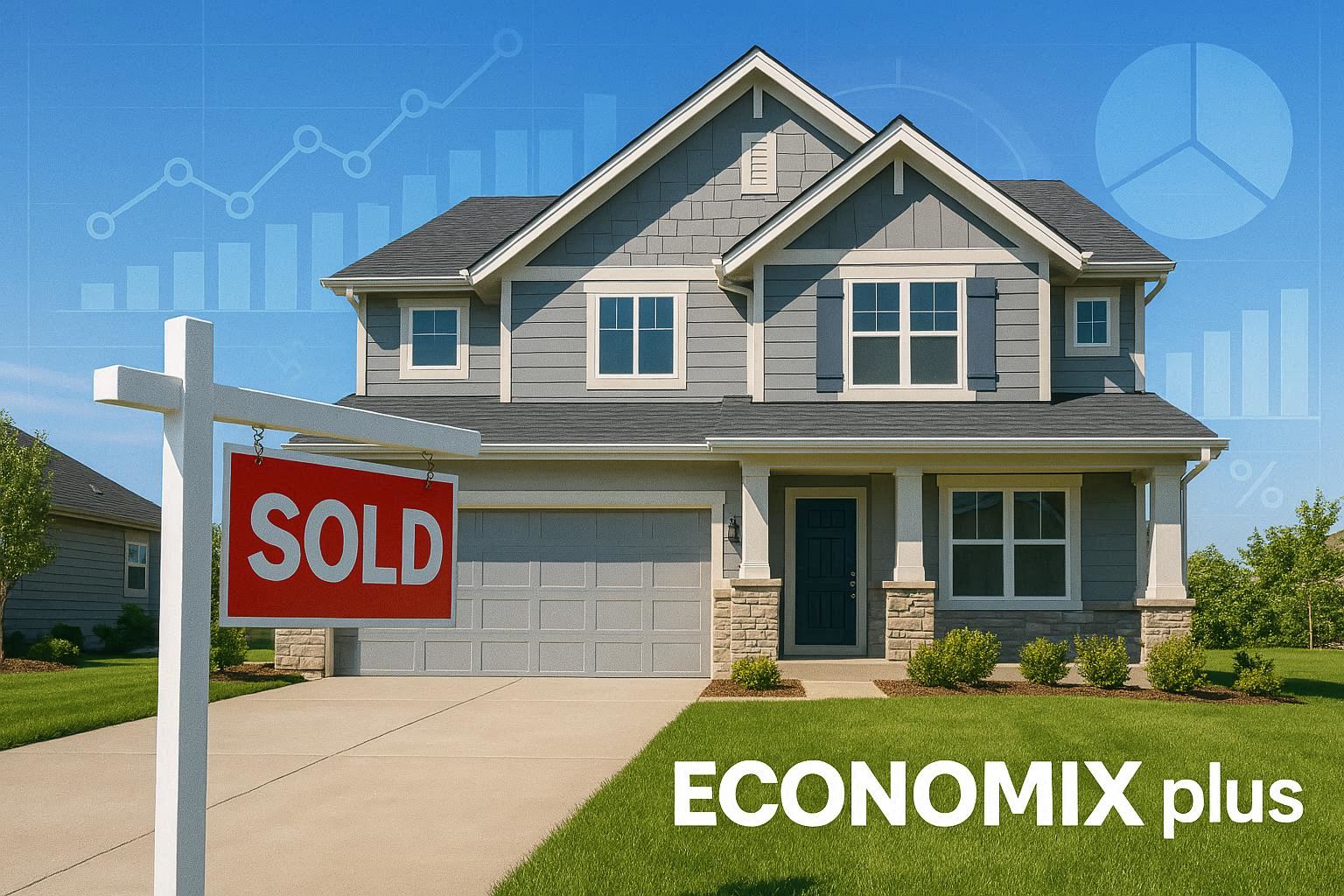
Did you know that despite the common perception, nearly half of all homeowners in the United States earn less than the median household income? According to a study by Harvard’s Joint Center for Housing Studies, a significant portion of homeowners are not high-earners, indicating that homeownership is within reach for many, even those with limited incomes. This surprising fact offers a powerful message: owning your own home is not just a dream for the wealthy; it’s an attainable goal for you, too.
Navigating the housing market when your income is limited can feel like an uphill battle. With rising property values and the constant pressure of expenses, it’s easy to feel discouraged. However, with strategic planning, disciplined saving, and an understanding of ethical financing options, you can absolutely achieve the dream of homeownership. This guide is designed to empower you with the knowledge and tools to embark on your home-buying journey without compromising your financial principles. We’ll explore practical steps, from budgeting and saving to identifying affordable properties and understanding Sharia-compliant acquisition methods, all tailored for individuals looking to build a stable future.
Crafting Your Path to Homeownership
Your journey to homeownership begins with a clear understanding of your current financial situation and a commitment to meticulous planning. It’s about making intentional choices that align with your long-term goals.
1. Master Your Money: Income Assessment and Budgeting
Before you can save for a home, you need to know exactly where your money is going. This isn’t just about tracking; it’s about taking control.
Detailed Income Assessment
Start by listing all sources of income. Be realistic and consistent.
* Primary Job Income: Your regular salary or wages.
* Secondary Income: Any side hustles, freelance work, or part-time jobs.
* Other Consistent Income: Rental income (if any), benefits, or regular gifts.
Once you have a clear picture of your total monthly income, you can move on to understanding your expenditures.
Expense Tracking and Ruthless Budgeting
This is where many people falter. The key is honesty and discipline.
* Track Every Dollar: For at least one month, meticulously record every single expense. Use an app, a spreadsheet, or a simple notebook. Categorize expenses like housing (rent, utilities), food, transportation, healthcare, personal care, and entertainment.
* Differentiate Needs vs. Wants: This is a critical step.
* Needs are essential for living: rent, basic groceries, utilities, necessary transportation, healthcare.
* Wants are non-essential but improve quality of life: dining out, subscriptions, new gadgets, expensive clothing, frequent travel.
* Be ruthless in identifying wants that can be reduced or eliminated. Could you cook more at home? Cut down on streaming services? Use public transport instead of rideshares?
A well-structured budget not only reveals where you can save but also provides a roadmap for your financial goals. Consider a budgeting method like the 50/30/20 rule (50% for needs, 30% for wants, 20% for savings and debt repayment, though for Sharia-compliant approaches, this will be 20% for savings), adjusting it to prioritize your home savings goal.
2. The Power of Dedicated Saving
Saving with a purpose is incredibly motivating. For a home, you’ll need to accumulate a significant down payment and funds for closing costs.
Setting Realistic Savings Goals
Your initial goal should be a down payment. While 20% is often cited as ideal to avoid private mortgage insurance (PMI), many people purchase homes with less. However, for those seeking Sharia-compliant methods, a larger down payment is often beneficial, as it reduces the financing amount needed.
- Research Local Home Prices: Look at properties in your target areas to get an estimate of what you might need. Websites like Zillow, Realtor.com, and local real estate agencies are good starting points.
- Calculate Your Down Payment Target: Based on your research, determine a realistic down payment percentage (e.g., 10-20% of the target home price).
- Set a Timeline: Break down your total savings goal into monthly or weekly targets. For example, if you need $30,000 for a down payment in 3 years, you’d need to save $833 per month.
Automating Savings for Consistency
Make saving effortless and consistent.
* Set Up Automatic Transfers: Schedule a portion of your income to be automatically transferred from your checking account to a dedicated savings account each payday. Treat this transfer as a non-negotiable expense.
* Utilize Savings Apps: Many apps can help you round up purchases and save the difference, or analyze your spending to find extra cash to put towards your goal.
Strategies for Increasing Your Income
While cutting expenses is crucial, increasing your income can significantly accelerate your savings.
* Side Hustles: Explore opportunities that align with your skills and interests. This could be anything from freelance writing, graphic design, online tutoring, pet sitting, or delivering groceries. Platforms like Upwork, Fiverr, and local community boards can be great resources.
* Skill Development: Invest in yourself. Learning new skills can lead to promotions, raises, or better-paying job opportunities. Online courses, certifications, or workshops can be valuable.
* Monetize Hobbies: Can you turn a hobby into a source of income? Selling handmade crafts, baking, or offering specialized services could generate extra cash.
* Sell Unused Items: Declutter your home and sell items you no longer need on platforms like eBay, Facebook Marketplace, or local consignment shops. Every little bit adds up.
Ethical Investment Options for Growth
Once you have an emergency fund built (typically 3-6 months of essential expenses), consider investing a portion of your savings to grow your wealth more quickly, while strictly adhering to ethical principles.
- Sharia-Compliant Real Estate Investment Trusts (REITs): These funds invest directly in physical real estate assets (like commercial properties, apartments, or warehouses) and distribute rental income to investors. They avoid debt-based financing and interest-bearing instruments. You become a fractional owner of real estate.
- Halal Equity Funds: These are mutual funds or exchange-traded funds (ETFs) that invest in companies screened for Sharia compliance. This means avoiding companies involved in alcohol, tobacco, gambling, pork products, conventional banking (interest-based), and entertainment deemed impermissible. The returns are based on the performance of the underlying businesses, not interest. You are investing in real economic activity.
- Direct Investment in Small Businesses/Projects: If you have the knowledge and opportunity, investing directly in a Sharia-compliant small business or project could yield returns, provided it’s a genuine profit-and-loss sharing arrangement, not a debt instrument.
- Gold and Silver: For long-term preservation of wealth, holding physical gold or silver can be an option, as they are considered real assets and historical stores of value.
Table 1: Savings Strategies and Potential Impact
| Strategy | Description | Potential Monthly Savings/Income Increase | Impact on Homeownership Goal |
|---|---|---|---|
| Aggressive Budgeting | Cutting non-essential expenses (dining out, subscriptions) | $100 – $500+ | Accelerates down payment savings |
| Automated Savings | Regular transfers to a dedicated account | Consistent, chosen amount | Builds discipline and consistent progress |
| Side Hustle | Freelance work, online services, part-time jobs | $200 – $1,000+ | Significantly boosts savings, reduces timeline |
| Skill Upgradation | Investing in courses for better job prospects | Variable (future salary increase) | Long-term increase in earning potential |
| Ethical Investments | Sharia-compliant REITs, Halal equity funds (after emergency fund) | Variable (market dependent) | Wealth growth, helps achieve down payment target faster |
| Selling Unused Items | Decluttering and selling possessions | $50 – $500+ (one-time/intermittent) | Provides lump sums for savings or specific costs |
3. Exploring Affordable Housing Options
Not every first home needs to be a mansion. Starting small and smart can be your ticket to homeownership.
Smaller Homes and Apartments: Condos and Co-ops
- Condominiums (Condos): You own your individual unit, and jointly own common areas (hallways, gyms, pools) with other residents. You pay monthly homeowner association (HOA) fees for maintenance of these common areas. Condos are often more affordable than single-family homes and can be a great entry point into homeownership.
- Cooperatives (Co-ops): Instead of owning your unit directly, you own shares in a corporation that owns the entire building. These shares give you the right to live in a specific unit. Co-ops often have stricter approval processes for buyers but can sometimes be more affordable than condos, especially in certain urban markets.
Undervalued Areas and Emerging Neighborhoods
- Research and Patience: Invest time in researching neighborhoods that are on the cusp of revitalization. Look for areas with new businesses, public transportation improvements, or community development projects. These areas often offer lower property prices but have potential for appreciation.
- Consider Commute: Be open to a slightly longer commute if it means you can afford a home in a developing area.
Foreclosures (Cash Purchase or Sharia-Compliant Finance Only)
Properties in foreclosure can sometimes be purchased below market value. However, this requires careful consideration.
* Cash Purchase: The simplest and most direct method, avoiding any interest-based financing.
* Sharia-Compliant Finance: If using a Sharia-compliant financing partner (e.g., through Murabaha or Musharaka), they would purchase the property and then sell or lease it to you under the agreed terms.
* Due Diligence is Key: Foreclosed homes are often sold “as-is” and may require significant repairs. Budget for inspections and potential renovations.
Fixer-Uppers: Buying Potential
A home that needs some tender loving care can be a fantastic opportunity to build equity.
* Realistic Renovation Budget: Get professional estimates for repairs before you buy. Overlooking costs for major systems (roof, HVAC, plumbing, electrical) can quickly turn a bargain into a financial burden.
* DIY vs. Professional Help: Identify what you can realistically do yourself to save money, and what tasks require licensed professionals.
* Liveable While Renovating: Consider if the home is livable during renovations, or if you’ll need temporary accommodation.
Community Land Trusts and Shared Equity Models
These innovative models can make homeownership more accessible and are often structured in a way that aligns with ethical principles, as they focus on community benefit and affordable asset ownership rather farom debt.
* Community Land Trusts (CLTs): A non-profit organization acquires and holds land permanently for the benefit of the community. They then sell homes on that land to low- and moderate-income individuals at an affordable price, while retaining ownership of the land. Homeowners lease the land, often for a very modest fee, reducing the overall purchase price. This promotes long-term affordability.
* Shared Equity Programs: These programs often involve a non-profit or government entity providing assistance (e.g., down payment aid) in exchange for a share of the home’s appreciation when it’s sold. This makes the initial purchase more affordable, aligning with principles of shared risk and reward. Always verify that any such program does not involve interest-bearing components.
4. Alternative, Ethical Financing Pathways
This section is crucial for anyone seeking to avoid conventional interest-based loans. Sharia-compliant financing offers viable alternatives that adhere to Islamic financial principles.
Key Principles of Islamic Finance:
* No Interest (Riba): All transactions must be free from interest.
* Asset-Backed: Transactions must relate to tangible assets.
* Risk Sharing: Parties share the risk and reward of a transaction.
* Ethical Investments: Avoidance of prohibited industries (e.g., alcohol, gambling).
Sharia-Compliant Home Financing Methods
These methods are offered by specific Islamic financial institutions or conventional banks with Islamic finance divisions.
-
Murabaha (Cost-Plus Sale):
- How it Works: The financial institution buys the property you want directly from the seller. Then, the institution sells the property to you at an agreed-upon higher price, which includes a pre-disclosed profit margin for the institution. You repay the institution in installments over a fixed term.
- Key Feature: This is a sale contract, not a loan. The price is fixed at the beginning, so there’s no interest. You become the owner immediately.
-
Musharaka (Partnership / Diminishing Musharaka):
- How it Works: This is a co-ownership agreement. The financial institution and you jointly purchase the property. You both own shares in the property. You then progressively buy the institution’s shares over time. While you are buying out their shares, you also pay rent for the portion of the property owned by the institution.
- Key Feature: It’s a true partnership with shared ownership and risk. The monthly payment typically consists of two parts: a payment to buy more shares from the institution and a rental payment for the shares still owned by the institution. As you acquire more shares, your rental payment decreases.
-
Ijara (Leasing / Ijara Wa Iqtina – Lease-to-Own):
- How it Works: The financial institution buys the property and then leases it to you for a specified period. At the end of the lease term, ownership of the property is transferred to you, either as a gift or through a nominal purchase.
- Key Feature: You are paying rent, and the rent payments contribute towards eventual ownership. It’s a lease agreement that culminates in ownership, without interest.
It is imperative to work with reputable Islamic financial institutions or advisors who are experts in these contracts to ensure full compliance.
Personal Savings and Family Contributions
For many, the most straightforward path to a home, especially with a limited income, is through significant personal savings and, if available, generous support from family.
- Savings as the Foundation: As discussed, your personal savings are the bedrock. The more you save, the less you rely on external financing, making the process simpler and often more affordable overall.
- Family Gifts: If family members are able and willing to contribute, a gift can significantly boost your down payment. Ensure these are true gifts, not loans requiring repayment, to avoid complicating your finances or potentially creating debt. A gift letter stating that the funds are a gift and not a loan will be required by financing institutions.
Crowdfunding (Sharia-Compliant Platforms)
While less common for full home purchases, Sharia-compliant crowdfunding platforms can be used for a portion of a down payment or for specific home improvement projects. These platforms connect individuals with investors who wish to support ethical endeavors, typically through profit-sharing or asset-based investments rather than debt.
Government and Non-Profit Assistance Programs (Verify Compliance)
Many states and local governments offer programs designed to help first-time homebuyers or low-income individuals achieve homeownership.
* Down Payment Assistance (DPA) Grants: These are funds provided as a gift that do not need to be repaid, making them fully compliant.
* Housing Subsidies: Some programs offer ongoing subsidies or reduced-cost housing solutions.
* First-Time Homebuyer Programs: These can offer various forms of assistance, but you must scrutinize them carefully to ensure they do not involve interest-bearing loans. Look for grants, deferred payment non-interest loans (which may be forgiven over time or upon sale), or shared equity models.
* Non-Profit Housing Organizations: Organizations like Habitat for Humanity often build and sell homes to low-income families with affordable, no-interest payment plans.
” The journey of a thousand miles begins with a single step. For homeownership, that step is often a carefully planned budget and consistent saving. ” – Adapted Proverb
5. Building Your Financial Foundation Beyond Savings
While saving for a down payment, it’s equally important to establish a strong overall financial foundation.
Emergency Fund First
Before aggressively saving for a down payment, ensure you have an emergency fund covering 3 to 6 months of essential living expenses. This fund acts as a financial safety net, preventing you from derailing your home savings if an unexpected expense arises.
Managing Existing Obligations Ethically
While this guide strictly avoids interest-bearing debt for home purchases, it’s important to manage any existing financial commitments responsibly.
* Avoid New Debt: During your savings journey, prioritize living within your means and avoid incurring any new financial obligations.
* Existing Ethical Debts: If you have existing obligations (e.g., student loans that were not interest-free, or credit card balances), create a plan to pay them off diligently. While we do not advocate for interest, fulfilling your commitments responsibly is a core principle. The less you owe elsewhere, the more financial flexibility you’ll have for your home.
6. The Home Search and Purchase Process
With your savings growing and financing options understood, it’s time for the exciting part: finding your home.
Working with a Real Estate Agent
- Find an Experienced Agent: Seek out a real estate agent who is familiar with your target neighborhoods and, crucially, knowledgeable about Sharia-compliant financing methods or alternative purchase structures. An agent who understands your specific needs can be an invaluable asset.
- Be Clear About Your Budget: Share your maximum purchase price and any specific requirements or preferences.
- Advocacy: Your agent will represent your interests, help you negotiate, and guide you through the complexities of the purchasing process.
Due Diligence on Properties
Never skip these critical steps:
* Home Inspection: Always hire a qualified home inspector to assess the property’s condition. This can reveal hidden issues that could be costly down the line.
* Appraisal: For financed purchases, an appraisal determines the property’s market value, ensuring you’re not overpaying.
* Title Search: This confirms that the seller has a clear legal right to sell the property and that there are no undisclosed liens or claims against it.
* Review HOA Documents (for Condos/Co-ops): Understand the rules, fees, and financial health of the homeowner’s association.
Understanding Closing Costs
Beyond the down payment, you’ll need funds for closing costs, which typically range from 2% to 5% of the home’s purchase price. These can include:
* Attorney Fees: For legal representation during the transaction.
* Title Insurance: Protects you and the financier against future claims on the property’s title.
* Recording Fees: To officially record the property’s change of ownership.
* Appraisal and Inspection Fees: Paid to the professionals who perform these services.
* Survey Fees: To confirm property lines.
* Property Taxes: Often paid in advance for a certain period.
Table 2: Estimated Costs Beyond Down Payment
| Cost Category | Description | Estimated Percentage of Home Price |
|---|---|---|
| Closing Costs | Attorney fees, title insurance, recording fees, appraisal, inspection, etc. | 2% – 5% |
| Renovation Budget | For fixer-uppers (highly variable) | 5% – 20%+ |
| Emergency Fund | 3-6 months of living expenses (should be separate from down payment) | Variable |
| Initial Maintenance | Immediate repairs, cleaning, move-in costs | $500 – $2,000 |
7. Maintaining Your Home: The Ongoing Commitment
Homeownership is an ongoing responsibility. Factor in these costs beyond the initial purchase.
- Budgeting for Repairs and Maintenance: Homes require upkeep. Set aside a percentage of your income (e.g., 1-3% of the home’s value annually) for routine maintenance and unexpected repairs. This could be anything from a leaky faucet to a new roof.
- Home Insurance: Protect your investment from damage due to fire, theft, natural disasters, and liability. This is a mandatory expense.
- Property Taxes: These are levied by local governments and are a recurring expense. Research the property tax rates in your target areas to understand your annual obligation.
Conclusion
Buying a home with a limited income is undeniably a challenge, but it is a challenge you can overcome with diligent planning, unwavering commitment, and a focus on ethical, interest-free pathways. It requires sacrifices, smart financial decisions, and often a degree of patience, but the rewards of owning your own home—stability, a sense of accomplishment, and an asset for your family’s future—are profoundly enriching.
Remember that every step you take, from tracking your first expense to saving your first dollar, builds momentum. Seek out knowledge, consult with financial experts who understand your values, and remain persistent. Your dream of homeownership is not just a dream; it is a tangible goal waiting to be achieved through principled action and strategic effort.
Key Takeaways
- Budgeting is Power: Meticulously track income and expenses to identify savings opportunities.
- Prioritize Saving: Automate transfers to a dedicated account for your home down payment.
- Boost Income Ethically: Explore side hustles and skill development to accelerate savings.
- Consider Sharia-Compliant Finance: Research Murabaha, Musharaka, or Ijara for interest-free home acquisition.
- Explore Affordable Options: Look into smaller homes, undervalued areas, or community land trusts.
- Build a Strong Foundation: Ensure an emergency fund is in place before focusing solely on a down payment.
- Due Diligence: Conduct thorough inspections and research before purchasing any property.
- Account for All Costs: Remember closing costs, maintenance, insurance, and property taxes.
FAQ
Q1: How much money do I really need for a down payment if my income is limited?
A1: While a 20% down payment is ideal, many ethical financing options and programs allow for less, sometimes as low as 5-10%. However, with limited income, aiming for a larger down payment reduces your overall financing amount and can make payments more manageable. Start by researching typical home prices in your desired area and then set a realistic percentage goal.
Q2: Can I really buy a home without taking out an interest-based loan in the USA?
A2: Yes, absolutely. Sharia-compliant financing institutions in the USA offer products like Murabaha, Musharaka, and Ijara, which are structured to avoid interest (Riba) and adhere to Islamic principles. These are increasingly available and recognized as legitimate alternatives to conventional mortgages.
Q3: What are the best ways to increase my income quickly to save for a home?
A3: Diversify your income streams. Consider taking on a side hustle such as freelancing, ride-sharing, online tutoring, or selling handmade goods. Invest in short-term skill development courses that can lead to higher-paying opportunities or certifications. Every extra dollar earned contributes significantly to your savings goal.
Q4: Are there government programs that can help me buy a home without interest?
A4: Yes, some government and non-profit programs offer down payment assistance grants or shared equity programs that do not involve interest-bearing loans. You must carefully review the terms of any program to ensure it aligns with your ethical principles. Look for programs specifically offering grants or forgivable aid rather than loans with interest.
Q5: What should I do if I can’t find a Sharia-compliant financing option in my area?
A5: If direct Sharia-compliant financing isn’t readily available, focus intensely on maximizing your personal savings. A full cash purchase eliminates the need for any external financing. Alternatively, consider exploring community land trusts or non-profit housing organizations that may offer no-interest or ethically structured purchase plans. You might also broaden your search to areas where such options are available, or consult with national Islamic finance advisors who can guide you on remote options.













